|
In a time of unparalleled prosperity, general economic and technological advancement and inter-connectedness, how is it that there are still so many people in need?
Today, rather than start at the top and look at notions of wealth distribution and inequality, I would like to unpack the notion of charity as it operates in our modern world. Charity; “the voluntary giving of help, typically in the form of money, to those in need.” “kindness and tolerance in judging others.” Charity is voluntary. It is related to our judgement of others. It requires an imbalance of resources, allowing for discretionary distribution of those resources along ‘charitable’ lines. It is possible, to be wholesale contributing to the suffering of others in your day to day life, your work, or your business while still being ‘charitable’. Therein lies the main problem. The paternal, hierarchical nature of modern conceptions of charity leave the door wide open for manipulation, misdirection, misunderstanding and worst of all, incomplete, inconsistent and inadequate outcomes for those in need. A kind of modern day, PR driven papal indulgence where we can transact to save our souls. If we replaced notions of ‘Charity’ with notions of ‘Justice’, how would that change the way that we made efforts towards improving equality of opportunity? Justice; “the quality of being fair and reasonable.” Could we ever consider it ‘just’ that we fail to pay living wages to people? Could it be considered ‘just’ to punish someone for a lack of guidance, education and resources? Could a ‘just’ society unevenly distribute the ways and means for people to advance to be the best of their abilities, hamstringing people who might otherwise grow to be outstanding, productive, contributing members of our communities? Could a ‘just’ society ever allow people to go hungry when there is food, go cold when there are enough roofs or remain uneducated in a time of unprecedented knowledge sharing capabilities? I am not advocating for a free-market, capitalist, neo-liberal ‘the market fixes everything’ approach as the alternative to charity. I am talking about changing the way we speak about our responsibility to others, to continue to move towards an understanding that everyone needs help at some point in their lives. A society that values justice, “the quality of being fair and reasonable.” would try and ensure that everyone who needs help, gets it, regardless of how and when they come to need it. It is time to move from a conversation that focuses on paternal transactions for ‘people in need’, a conversation where the emphasis is on the giver, not the receiver. To creating a conversation about the needs of ‘People’ in a just society. If you are ready to move from a transactional model of altruism to a transformational one, The Just Be Nice Project is the only organisation of it’s kind working to change the way people help people. Get in touch if you’d like to find out more, we’d love to hear from you.
We aren't here to demonise for-profit or non-profit organisations. We are here to demonise waste.
We don't believe that good will is more important than good skill for people in need. We believe that we can change the way that people help people, but we need your help, if you or your organisation are looking to have a more significant and relevant impact in the world, get in touch. 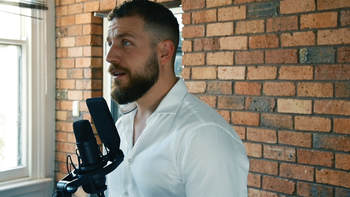
We've come a long way with encouraging men to speak up about their poor mental health and to let people know when they are struggling.
But what are we doing after that? The Just Be Nice Project is committed to not only improving the conversation around mental health, but also improving the access to the material support required to create environments where people can flourish. You can support our work by subscribing and becoming a JBN Legend Here, we can't do it without the support of our amazing partners and subscribers. Helping people feel good about doing good is an important element of engagement, but it cannot be the end-game to getting people involved in positive impact.
Is it easy to feel good about things that don't do that much good? Absolutely. Is that the best we can do? Absolutely not. The end game, and point of help, should always be about what happens for the person in need. Teaching people what effective looks like for people in need, rather than finding ways to make people feel good about attempts at help, is the real future of helping people, help people. Our work at the Just Be Nice Project is about harnessing the potential of every organisation and individual into effective impacts for those in need, while remaining engaging, relevant and worthwhile to those providing the help. There is a better way. Creating extraordinary positive change in the world, by helping people make ordinary positive change.
People in need with cancer.
People in need facing extreme prejudice. People in need of mixed abilities. People in need without employment or a chance of employment. People in need growing up in disadvantage. People in need who are suffering economic distress. People in need with mental health issues. People in need without a place to live. People in need who live overseas. People in need who have inadequate education. People in need who are sick. People in need who fear for their lives. People in need who look after people in need. People in need with empty bellies. People in need who have had a life of privilege and find themselves facing tough times. People in need who have never had the privilege of a resource rich environment. We see people in need. Rather than fight about what cause is the most important, and argue among causes, we believe in creating an eco-system that works to help people in need. It starts with an acknowledgement that people find themselves in need in many different ways, at many different times, for many different reasons. Rather than take the needs of any one community as more important than another, we consider the knowledge of one community about the most effective ways to help that particular community as important. Fighting for causes too often means causes fighting against causes. We are here to fight inefficiency. We are here to fight inequality. We are here to fight for people in need. We are not here to fight inequality with only a spreadsheet and a calculator, but we are also not here to fight inequality with only misguided good intentions and a short-lived peak in emotive interest. We are not here to do things the way that they have been done in the past, because we know that we can do better. We are here to fight alongside people who believe that we can do better. We are here to fight alongside people who are tired of seeing wasted money, time and good intentions. We are here to fight for those in need. We would love you to join that fight.
The notion of the feckless poor is a common narrative among conservatives the world over. The persistent insinuation is that people are poor or 'under-performing' because of a lack of morals. Poor because they don’t work hard. ‘There is opportunity everywhere’ the conservatives say, you simply have to take ownership of your life and pursue it, if you don't, there is no one to blame but yourself.
This week, after a series of circumstances and events that one could not describe as anything but farcical, dishonest and lacking character, Scott Morrison was installed as leader of the Liberal party and Prime Minister of Australia. Among the values espoused in his first press conference, the common call to arms for conservatives of, ‘if you have a go, you’ll get a go’ featured. If you have a go. The reality is, in action, there are plenty of people who ‘have a go’ and don’t ‘get a go’ in this country. The asylum seekers imprisoned on Manus Island, having a go, seeking asylum, as is their right. Is undertaking a treacherous journey to protect your life and that of your family not really having a go? People on the NDIS, leaving about half of the people with disabilities worse off than they were under previous schemes, despite the government spending twice as much. Are these people not having enough of a go? The 2.9 million Australians that live below the poverty line, including the 36% of them who rely on wages as their main source of income, are they not having a go? Should they simply, as Malcolm Turnbull put it “…seek to earn more”? Is the renewable energy sector, with it’s huge strides towards creating cheaper power than fossil fuel sources by 2020 not really having a go? Are students in under-performing schools not having a go? Hamstrung by funding cuts and a teaching profession that treats teachers so poorly that 50% of teachers leave the vocation within a few years of starting, are we sure that these students not having a go? We need to beware of claims of equality that aren’t matched by the relevant social and legislative supports - …in societies which claim to recognize individuals only as equals in right, the educational system and it’s modern nobility only contribute to disguise and legitimise in a more subtle way the arbitrariness of the distribution of power and privileges which perpetuates itself through the socially uneven allocation of school titles and degrees. – Pierre Bourdieu & Jean-Claude Passeron. If we are really serious about giving everyone a go, then we must be serious about improving equality of opportunity for everyone. Not demanding contributions upfront from the most vulnerable, but making it our job to help them get to a place where they are able to contribute. Regardless of our ability or circumstances, we are here to make a contribution, rather than take one; that in order to you to do better, you don't think someone else has to do worse – Scott Morrison The real test of the government will be to see how serious they are about building an environment that does, in fact, foster growth and opportunity for all, and not simply a chosen few. We will be watching closely.
http://www.abc.net.au/news/2018-05-01/third-of-ndis-participants-feel-no-better-off/9716282
https://www.acoss.org.au/poverty/ https://www.smh.com.au/education/why-up-to-half-of-all-australian-teachers-are-quitting-within-five-years-20170605-gwks31.html https://www.afr.com/news/transcript-of-new-prime-minister-scott-morrisons-first-press-conference-20180824-h14h1a https://www.forbes.com/sites/dominicdudley/2018/01/13/renewable-energy-cost-effective-fossil-fuels-2020/#36a259674ff2
In Italy, as of 2016, stealing a small amount of food in a moment of necessity is not a crime.
This came off the back of a case involving a man at a supermarket who paid for breadsticks and attempted to leave with cheese and sausages in his pocket, to the value of €4.07. He was initially sentenced to a €100 fine and 6 months imprisonment. The court found that the food was taken "in the face of the immediate and essential need for nourishment", ruling that in this case "humanity is more important than punishment, that the right to survival prevails over property". The Italian Court of Cassation judgement "reminds everyone that in a civilised country not even the worst of men should starve". In how many other instances can we argue for the right for survival over property? What would be the implications for taking this view further, and would they be positive? Considering this, How might we be able to address the issue of empty investment properties, squatting, unaffordable medications and waiting lists for essential services that are months long? Rather than an adversarial, legislative imperative created in courtrooms, is it possible to create a culture in the community that see's the right to survival as an important right for all of us? If we had a cultural imperative to look after one another, how might we then manage our resources for the good of us all, taking into account the needs, desires and expectations of both property owners and those in need. Given the strength of each person’s sense of self-preservation, is six months in prison and a €100 fine really a deterrent to a starving man? Does the cost of arrest, prosecution and holding this man in remand & prison really justify not simply having mechanisms in place to ensure he never has to steal €4 of food in the first place? Do situations like this encourage us to look for prevention and support systems over and above intervention and punishment systems? 1 in 10 people in Italy are unemployed, if there aren’t enough jobs for 10% of the population to work, should it be the responsibility of the remainder of the employed population to contribute to their upkeep while the economy rallies? We believe that it makes sense, not only morally, but fiscally. By engaging and effectively managing resources, we are able to provide for people in need without it necessarily costing more than prison, courts, policing, hospitalisations or late-stage interventions. Consider even the cost to the supermarket to pursue this man for a crime. If it takes a few moments of their time to answer questions, surely that costs more in wages than the €4 of food in his pocket. Perhaps even the margins on the food he paid for, contributes to the cost of the food he was unable to pay for. At the Just Be Nice Project, we create innovative ways to assist in the management of property and distribution of excess and available resources to those in need. With voluntary contributions and engagement from our partners, we are working towards a day when people in need, get the help they need, when they need it, for as long as they need it. Regardless of how they come into hardship in the first place. We agree. “In a civilised country, not even the worst of men should starve.” References; http://time.com/4317753/homeless-food-theft-italian-court/ https://www.bbc.com/news/world-europe-36190557 |
Just Be NiceA collection of articles relevant to pursuing the effective execution of altruism in the search for equality of opportunity. Archives
February 2020
Topics
All
|
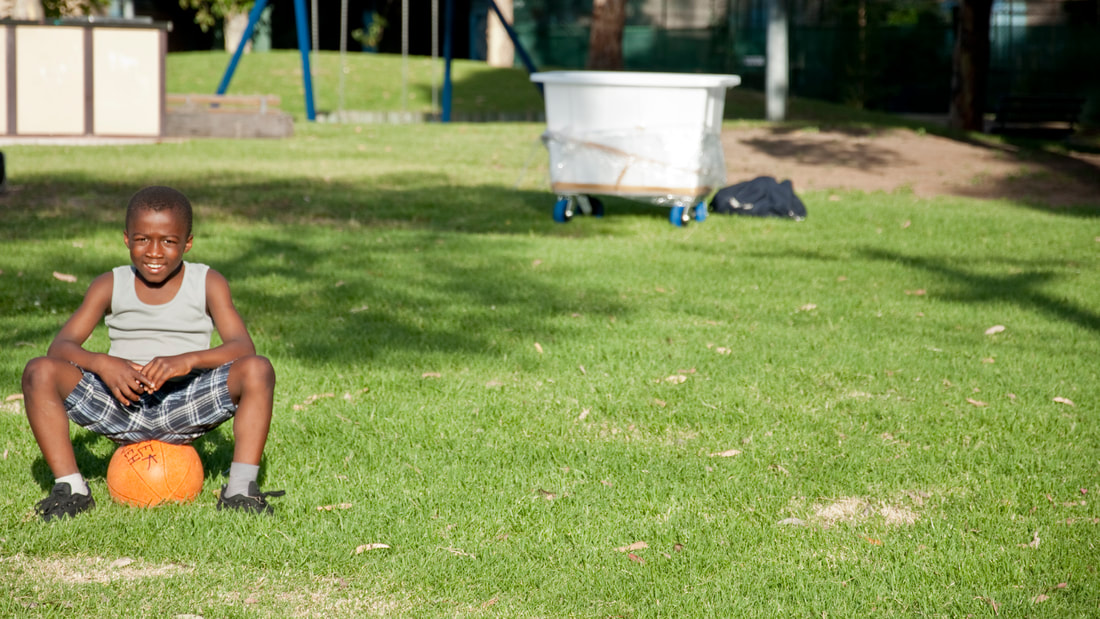
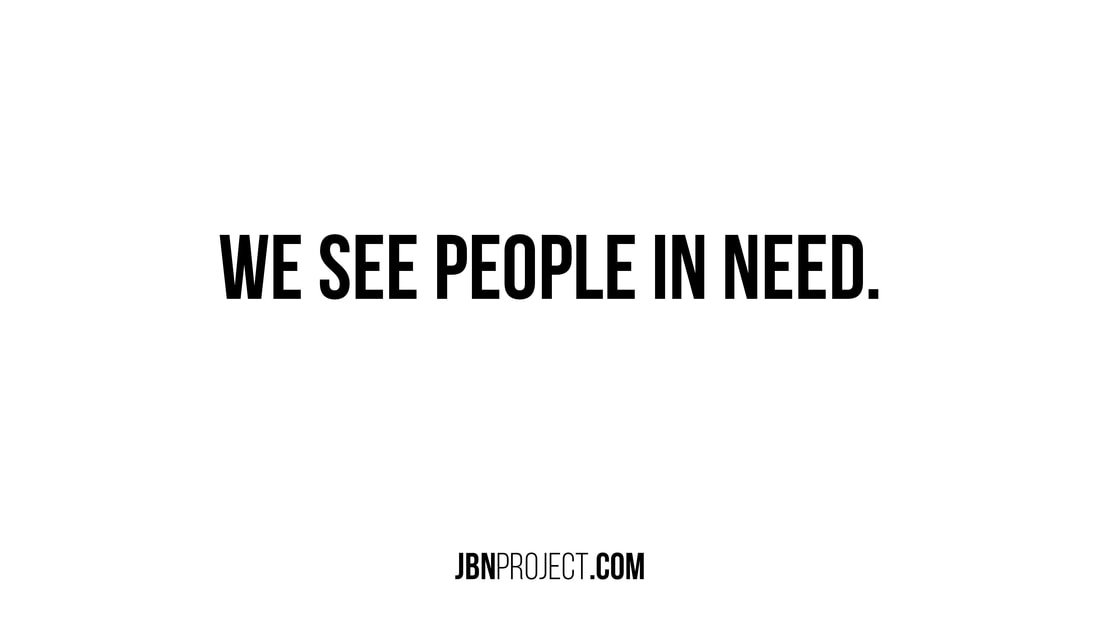
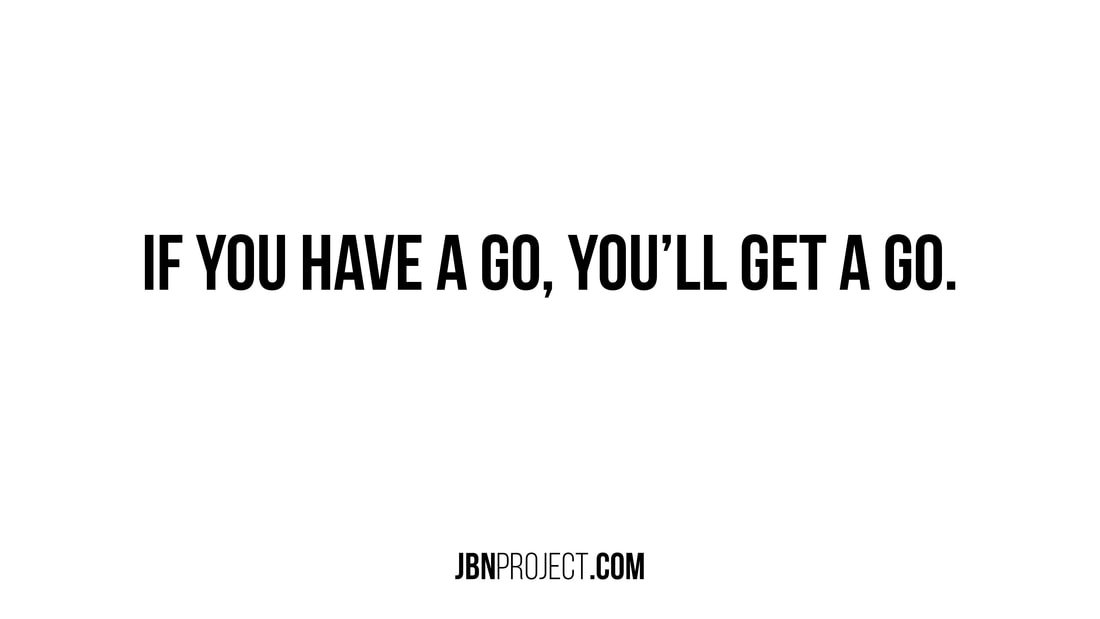
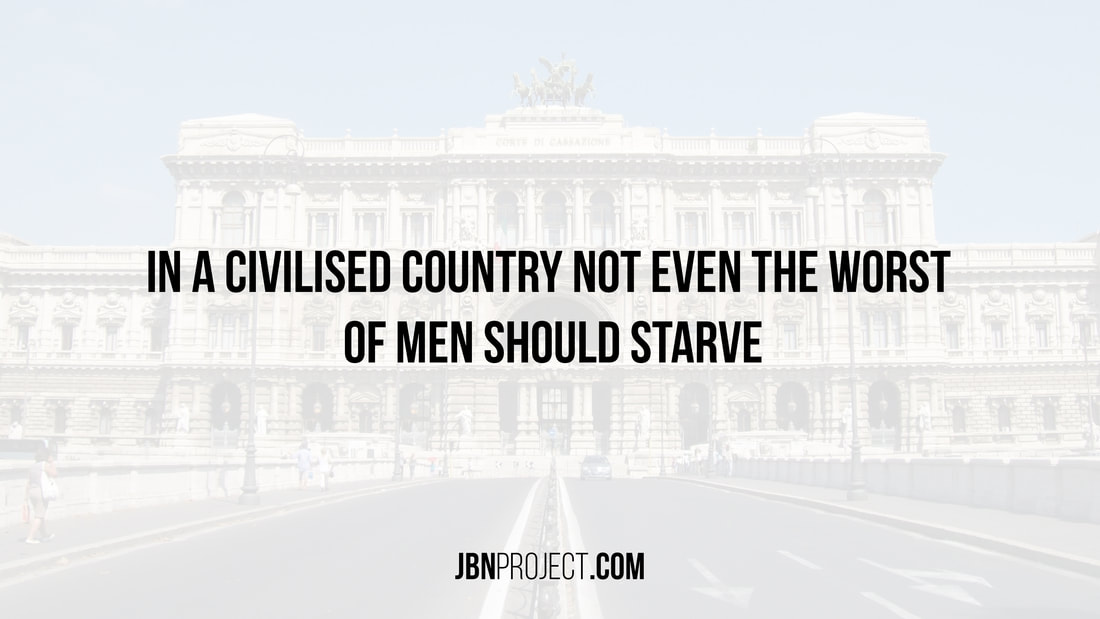
 RSS Feed
RSS Feed